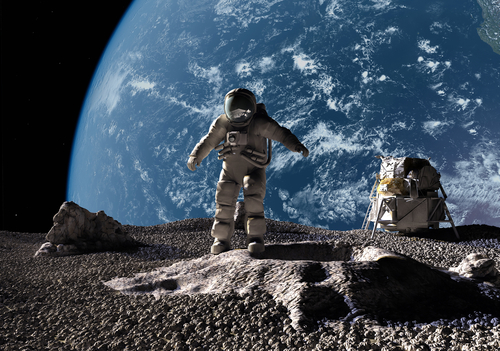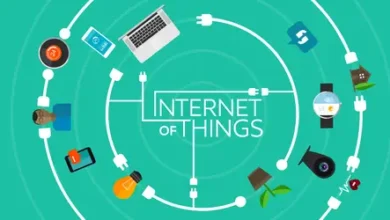Benefits of Space Exploration: Beyond Boundaries of Human Knowledge

Are we alone in the universe? This seemingly simple question has stirred up curiosity, fascination, and intrigue amongst humans for centuries. Welcome to “Space Exploration Technology: Pushing the Boundaries of Human Knowledge”, an insightful delve into how modern technology is not only helping us explore this daunting query but also catapulting our understanding of everything beyond our stratosphere. Let’s explore the challenges and benefits of Space Exploration Technology.
We will journey through the cosmos without leaving our chairs; exploring Mars rovers, advanced telescopes, and cutting-edge spacecrafts that push human knowledge to new frontiers every day. Understanding space exploration technologies isn’t just about knowing what’s out there. It’s a testament to humanity’s unquenchable thirst for knowledge and proof that when it comes to discovery – sky is not the limit! So strap yourselves in as we voyage into galaxies far away, uncover celestial secrets previously unknown and embrace one extraordinary truth. Our quest into space is truly a leap towards understanding ourselves better.
Embracing the Challenges of Space Exploration Technology
Embracing the challenges of space exploration is essential in pushing the boundaries of human knowledge. From navigating the vast distances of outer space to developing technologies that can withstand the harsh conditions of other planets, space exploration requires a combination of innovation, determination, and collaboration. The quest to understand the mysteries of the universe drives scientists and engineers to tackle complex problems and create groundbreaking solutions. Whether it’s designing advanced propulsion systems or conducting experiments in microgravity, each challenge presents an opportunity to expand our understanding of the cosmos and inspire future generations to continue exploring the final frontier. By pushing the limits of what is possible, we not only advance scientific knowledge but also pave the way for humanity’s future in space.
Space Technology Innovations in Modern Astronomy
Technological innovations in modern astronomy have revolutionized our understanding of the universe. From advanced telescopes and imaging techniques to powerful computational algorithms, these tools have enabled scientists to observe distant galaxies, study cosmic phenomena, and detect exoplanets with unprecedented accuracy. The development of space-based observatories, such as the Hubble Space Telescope and the James Webb Space Telescope, has provided astronomers with unique perspectives on the cosmos beyond Earth’s atmosphere. Furthermore, advancements in data processing and analysis have allowed researchers to make groundbreaking discoveries about the origins of the universe, the nature of dark matter and dark energy, and the possibility of life beyond our solar system. As technology continues to evolve, the future of astronomy and benefits of Space exploration looks promising for even more exciting discoveries and insights into the mysteries of the universe.
SpaceX: Revolutionizing Space Travel
SpaceX, founded by entrepreneur Elon Musk in 2002, has been at the forefront of revolutionizing space travel. With a vision to make life multiplanetary, SpaceX has achieved significant milestones such as the development of reusable rockets and the successful launch and landing of spacecraft. By reducing the cost of space travel and increasing accessibility, SpaceX has opened up possibilities for a new era of exploration and colonization beyond Earth. The company’s ambitious goals include missions to Mars and the establishment of a human presence on the red planet. Through its innovative technologies and relentless pursuit of progress, SpaceX is pushing the boundaries of human knowledge and paving the way for a future where space travel is not just a dream but a reality.
The International Impact and Collaboration in Space Science
Science Space exploration technologies have significantly advanced human knowledge by allowing international collaboration on a scale never before seen. Nations around the world have come together to work on various space missions, pooling resources, expertise, and technology to achieve common goals. This collaboration has led to groundbreaking discoveries in space science, such as the exploration of distant planets, the study of black holes, and the search for extraterrestrial life. By working together, countries have been able to share the costs and risks associated with space exploration, leading to more ambitious projects and a deeper understanding of the universe. The international impact of such collaborations has not only expanded our scientific knowledge but also fostered cooperation and diplomacy among nations in the pursuit of a common goal exploring the unknown wonders of outer space.
Future Prospects: Furthering Human Knowledge Beyond Earth
As we continue to push the boundaries of human knowledge through space exploration technologies, the future holds exciting prospects for furthering our understanding of the universe beyond Earth. With advancements in spacecraft design, propulsion systems, and deep-space communication technologies, we are on the brink of new discoveries and breakthroughs. From probing the mysteries of distant planets to studying the origins of the universe itself, the possibilities are endless. By expanding our reach into the cosmos, we pave the way for future generations to unlock the secrets of the universe and potentially even discover new forms of life beyond our own planet. Benefits of Space exploration technologies are instrumental in shaping the future of humanity and broadening our perspectives on the vast unknown that lies beyond Earth.





